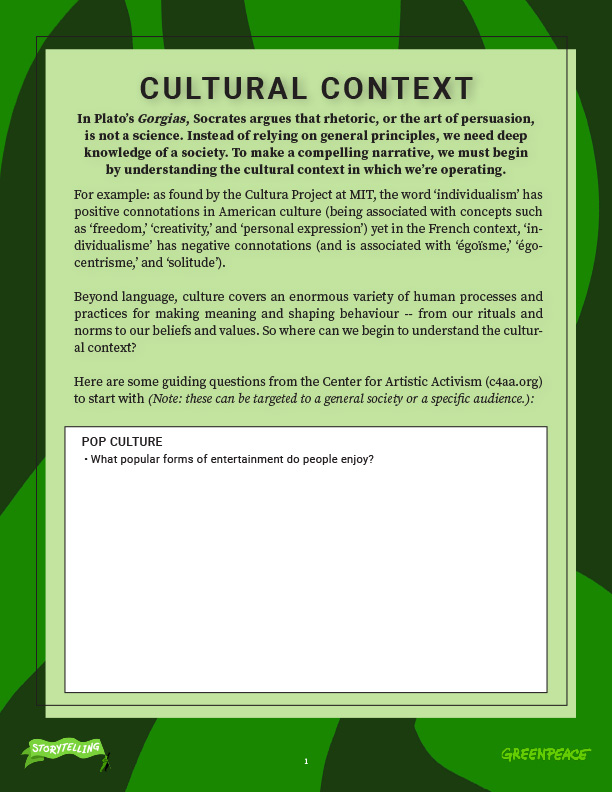EXERCISE: CULTURAL CONTEXT

In Plato’s Gorgias, Socrates argues that rhetoric, or the art of persuasion, is not a science. Instead of relying on general principles, we need deep knowledge of a society.
To make a compelling narrative, we must begin by understanding the cultural context in which we’re operating.
For example: as found by the Cultura Project at MIT, the word ‘individualism’ has positive connotations in American culture (being associated with concepts such as ‘freedom,’ ‘creativity,’ and ‘personal expression’) yet in the French context, ‘individualisme’ has negative connotations (and is associated with ‘égoïsme,’ ‘égocentrisme,’ and ‘solitude’).
Beyond language, culture covers an enormous variety of human processes and practices for making meaning and shaping behaviour — from our rituals and norms to our beliefs and values. So where can we begin to understand the cultural context?
Here are some guiding questions from the Center for Artistic Activism (c4aa.org) to start with:
Note: these can be targeted to a general society or a specific audience.
1
Pop Culture
- What popular forms of entertainment do people enjoy?
2
Alternative Culture
- Are there alternative forms of culture people create or take part in?
3
Media
- What media — both mainstream and alternative — do people rely upon for information, including print, radio, TV, internet, word-of-mouth etc.?
4
Big C Culture
- What are the most visible and long-lasting forms of culture?
- These are objects or practices that don’t change quickly, and are the most overt forms of culture. For example: museums, folk tales, holidays, art, literature, food.
5
Little c Culture
- What are less visible forms of culture, often associated with a region, a group of people, language etc.?
- These are cultural objects or practices that change more often. For example: communication styles or norms of behaviour (such as walking on the right or left side).
DOWNLOAD THIS EXERCISE

